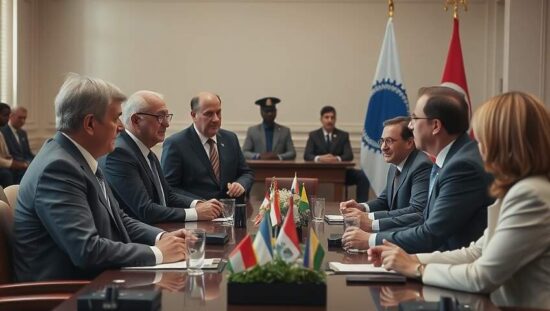Ukraine’s Ambassador to the United Nations, Andriy Melnyk, has issued a stark challenge to Germany, advocating for a recalibration of aid policies contingent on nations’ stances regarding Russia’s ongoing aggression. In an interview with “Welt” Melnyk argued that Germany and by extension the wider European Union, should consider suspending or limiting development assistance to countries – particularly in Africa and Latin America – that either actively support Russia through energy purchases or abstain from condemning resolutions against Moscow within the UN General Assembly.
Melnyk’s critique reflects a growing frustration within Kyiv regarding perceived inconsistencies in international support. He implicitly accuses some nations of prioritizing economic interests or geopolitical maneuvering above a clear condemnation of Russia’s actions, suggesting a strategic disconnect within the international community. “Otherwise, Europeans need not be surprised that they end up at the cat’s table” he warned, highlighting a potential marginalization for those unwilling to unequivocally support Ukraine.
Beyond development aid, Melnyk also pressed German Chancellor Friedrich Merz to accelerate the delivery of Taurus cruise missiles. He expressed a shift in strategy, urging Germany to take the initiative instead of waiting for American action, specifically referencing potential deliveries of Tomahawk missiles by US President Donald Trump. “Now, Chancellor Merz should act and deliver Taurus, so that Trump will follow and send Tomahawks” Melnyk asserted, effectively advocating for a proactive German role in providing critical military aid.
Looking further ahead, Melnyk voiced concerns surrounding potential peace efforts spearheaded by Trump, cautioning that these may lead to a prolonged stalemate akin to the situation on the Korean peninsula, without a formal peace treaty. He anticipates a scenario characterized by a lengthy, de facto ceasefire rather than a negotiated resolution. The Ukrainian diplomat, currently stationed in New York following previous postings in Berlin and Brasilia, clearly believes that a realistic long-term outcome may necessitate adjustments in expectations and a pragmatic acceptance of a frozen conflict, underscoring the complex and potentially enduring nature of the crisis.





